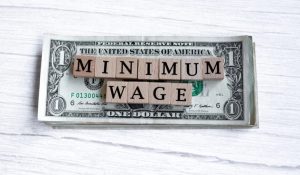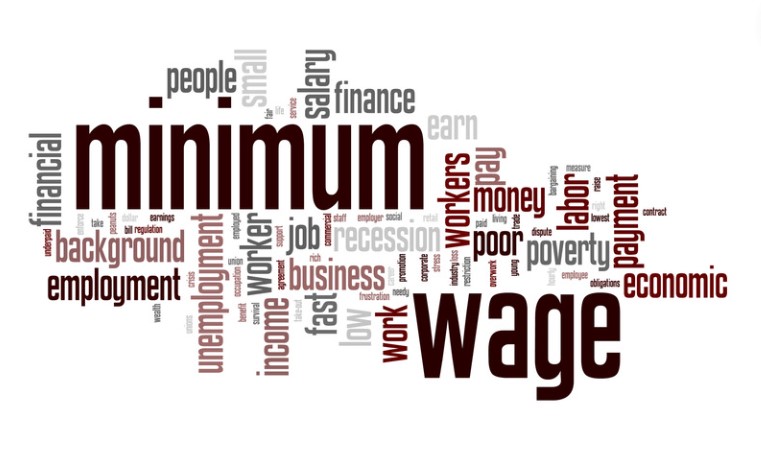The minimum wage has been a hot topic of discussion in Canada for quite some time now. This year, government workers and businesses are facing a minimum wage hike in Manitoba that will benefit more citizens than before. In addition, minimum wage rates will likely increase significantly next year. Three amendments to Manitoba’s minimum wage make it more lucrative for over 18 thousand employees in the province to earn more money. In this blog, we will share information about what is minimum wage in Manitoba.
What is the Minimum Wage?
The minimum wage is the lowest amount of money a person can pay for a particular job. It is usually set by the government to protect workers from exploitation and ensure that everyone receives fair compensation for their work.

The federal government has been setting minimum wage since 1918 when it was first established as $0.25 per hour (or $3.00/day). Since then, it’s been updated periodically through legislation passed by Congress or other means—including inflationary adjustments based on CPI changes—and now sits at $7/hour nationwide; however, some states still have their own laws on the topic and may not follow those guidelines either
What is Minimum Wage in Manitoba?
The minimum wage in Manitoba is $ 13.50 per hour, which means the lowest amount a worker can earn is $ 13.50 per hour. However, there are exceptions to this rule for some age groups and industries. For example, suppose you’re under 18 years old or over 65 years old and working for an employer who has been operating for two consecutive years without being paid minimum wage.
In that case, your employer must pay at least $ 13.50 per hour instead of their regular rate (which will be higher than what they would pay if they were paying you).
If you’re working in a very small business, your employer can pay less than $ 13.50 per hour but must make up the difference if you don’t make at least $ 13.50 per hour after deductions and commissions are considered.
What Is The Average Salary In Manitoba?
You may be surprised to learn that Manitoba’s average salary is $51,000 annually. The city of Winnipeg has an average salary of $82,000, while Brandon comes in at $50,800, and Thompson has an average annual income of $58,000.
The numbers vary depending on what industry or job you work in, but if you’re earning minimum wage and have been working full-time since last October 15th (when the new rate went into effect), then it’s safe to say that you take home pay will increase by approximately 30% over last year’s amount!
What Is the Living Wage in Manitoba?
A living wage is the minimum amount of money someone needs to live in a certain area. It’s different from the minimum wage, which is set by law and enforced by government agencies like Employment Standards Canada.
The living wage in Manitoba is $15.15 per hour for full-time employment; however, other factors can affect how much you earn when working at this rate (for example: if you’re a student or under 18).
What Is Overtime Pay In Manitoba?
In Manitoba, overtime pay is time and a half. This means that if you work more than 40 hours a week, you’ll be paid at the regular hourly rate for any additional hours worked beyond 40.
Overtime pay isn’t just for those working long shifts or on weekends—it applies to anyone who works more than 8 hours a day (or 10 hours during two consecutive days). You’ll also receive this extra compensation if your shift is extended beyond its scheduled end time due to circumstances outside your control, like an emergency situation or natural disaster.
Minimum Wage Tax Rates In Manitoba

Minimum wage tax rates in Manitoba are the same as the federal government. The province has its own minimum wage, and the government sets it, so there are no different rules or regulations when it comes to determining your deductible or taxable income. The tax rates in Manitoba are,
| 2023 Taxable Income | 2023 Tax Rates | 2022 Tax Rates |
| first $36,842 | 10.80% | 10.80% |
| over $36,842 up to $79,625 | 12.75% | 12.75% |
| over $79,625 | 17.40% | 17.40% |
Do Employers Have to Offer Their Employees Raises?
Employers are not required to increase employees’ wages, regardless of how long they work for them. However, suppose an employer has a written employment contract or union agreement with its employees. In that case, this document specifies that the wages will be increased on certain dates (for example, every year). They must follow through with it according to those provisions.
If you have a written employment contract or union agreement with your employer, check it before asking for a raise. If there is nothing in the contract about wage increases, then they are not obligated to give you one.
Is It Necessary for Everyone to Make at Least the Minimum Wage?
All employees must receive minimum wage unless they are not covered by provincial employment standards or are excluded from the legislation. Some groups of employees who are excluded from the minimum wage are:
- Domestic workers who work less than 12 hours weekly
- In an approved provincial or federal training program
- Election officials, enumerators and other temporary persons appointed under The Elections Act
The Employment Standards Act does not cover Independent contractors. They are self-employed and work for themselves, so they do not have any employment rights or protections under the law. An employer may also try to classify an employee as an independent contractor in order to avoid paying minimum wage.
Is the Minimum Salary Applicable to Students and Part-time Workers?
The minimum wage applies equally to all employees regardless of age or the number of hours they work. The sort of work that people under the age of 18 can do is restricted.

The following are examples of situations where there may be exceptions:
- The employer has an agreement with another business or organization (e.g., a school) which requires students from that institution to perform services for them in exchange for tuition money
- A student is working part-time and earning $15 per hour
- A part-time worker earns $10 per hour while they attend school full time at night, but their employer doesn’t pay more than minimum wage because the job isn’t covered by Employment Standards legislation
Is the Minimum Salary Applicable to Incentive-paid Employees?
The minimum wage is applicable to all workers, including incentive-paid employees.
Yes. Employees who are paid incentives, like commission salespeople or flat-rate mechanics, must earn at least minimum wage in each pay period. Employers must top up or add wages when an employee has not earned at least minimum wage in each pay period and ensure that the total compensation package meets or exceeds the province’s general rules on overtime pay.
Is There a Minimum Salary in Construction?
The minimum wage applies to residential construction and building maintenance. There are separate minimum wage rules for the heavy construction sector and the construction industry’s industrial, commercial and institutional (ICI) sectors.
The Manitoba government has set a $15 per hour rate for workers who perform janitorial services in schools, hospitals and other health care facilities; food service workers at restaurants; cleaning staff in hotels; waitresses at bars & restaurants; playground operators such as lifeguards or ski patrol members working at sporting events sponsored by government agencies such as Parks Canada.
What Will Be the Minimum Wage in Manitoba in 2024?
The minimum wage in Manitoba is $13.50 per hour, but it’s rising to $15.30 per hour by October 2023. That means you’ll make more money if you work in Manitoba than if you live anywhere else in Canada!
The minimum wage for people under 16 is lower than other provinces’ rates because fewer students are working at that level compared to other provinces.
The minimum wage in Alberta is $13.60 per hour, which is the highest on this list and one of the highest in Canada. The province also has one of the lowest unemployment rates in all of Canada, so there are plenty of job opportunities.
Conclusion
Legally, there are no special laws regarding the minimum wage in Manitoba. The wages are based on the job description of each employee and the cost of living in Manitoba. Additionally, no legislation requires employers to pay more than minimum wage to employees under a certain age or with a certain skill level.
FAQ – What is Minimum Wage in Manitoba?

Which province in Canada has the highest minimum wage?
The province of Nunavut has the highest minimum wage in Canada. The minimum wage for employees under 18 years old is $16 per hour.
Employees under 18 years old earn a minimum of $16 per hour if their employer offers paid vacation or sick leave benefits; otherwise, they receive only one day off each month without pay.
Which province in Canada has the best job?
The top sex provinces which provide the best jobs are,
- Ontario
- Manitoba
- Nova Scotia
- Alberta
- British Columbia
- Quebec
What is the top 5% wage in Canada?
The top 5% of earners in Canada make about $236,400 annually. This is the minimum wage for someone who works full-time and does not receive any overtime pay.
This means that if you are earning more than this amount, you’re probably not working for a large company or government agency but rather an entrepreneur or small business owner who has to work harder than most people to earn their money.
What is a good hourly wage in Canada?
In Canada, the average hourly wage was 23.41 CAD from 1997 to 2023, with a new high of 33.87 CAD in February 2023 and a record low of 15.88 CAD in January 1997.
If you work full-time (40 hours per week), your total monthly earnings will be $9,297.
The average Canadian full-time worker earns $48,000 per year. The average hourly wage was $23.41 CAD from 1997 to 2023, with a new high of $33.87 CAD in February 2023 and a record low of $15.88 CAD in January 1997. If you work full-time (40 hours per week), then your total earnings for one month will be $9,297
Is the minimum wage going up to $15 in Manitoba?
The Manitoba government has decided to raise the minimum wage in the province. As of 2024, all workers will earn at least $15 per hour.










